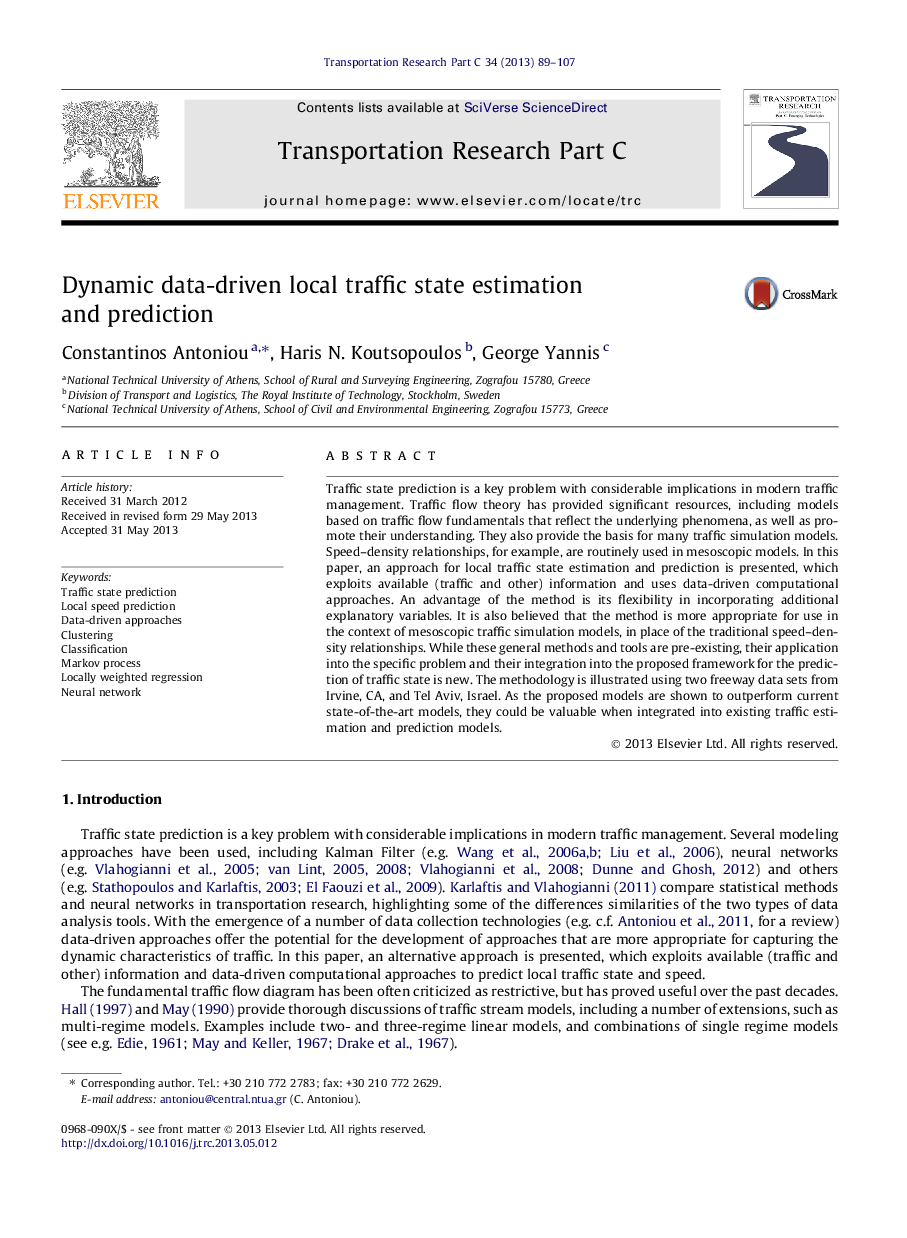| Article ID | Journal | Published Year | Pages | File Type |
|---|---|---|---|---|
| 525151 | Transportation Research Part C: Emerging Technologies | 2013 | 19 Pages |
•Data-driven approach for local traffic state estimation and prediction.•Pre-existing modeling components in a methodologically novel way.•Flexibility in incorporating additional explanatory variables.•Shown to outperform current state-of-the-art models.
Traffic state prediction is a key problem with considerable implications in modern traffic management. Traffic flow theory has provided significant resources, including models based on traffic flow fundamentals that reflect the underlying phenomena, as well as promote their understanding. They also provide the basis for many traffic simulation models. Speed–density relationships, for example, are routinely used in mesoscopic models. In this paper, an approach for local traffic state estimation and prediction is presented, which exploits available (traffic and other) information and uses data-driven computational approaches. An advantage of the method is its flexibility in incorporating additional explanatory variables. It is also believed that the method is more appropriate for use in the context of mesoscopic traffic simulation models, in place of the traditional speed–density relationships. While these general methods and tools are pre-existing, their application into the specific problem and their integration into the proposed framework for the prediction of traffic state is new. The methodology is illustrated using two freeway data sets from Irvine, CA, and Tel Aviv, Israel. As the proposed models are shown to outperform current state-of-the-art models, they could be valuable when integrated into existing traffic estimation and prediction models.
